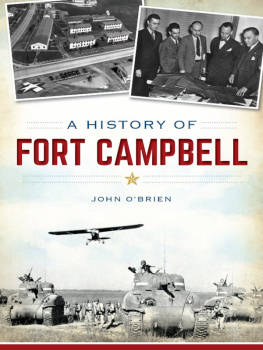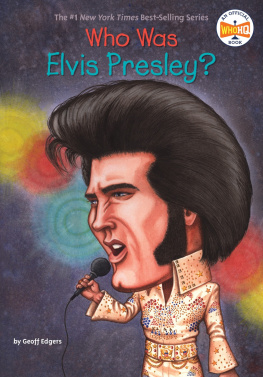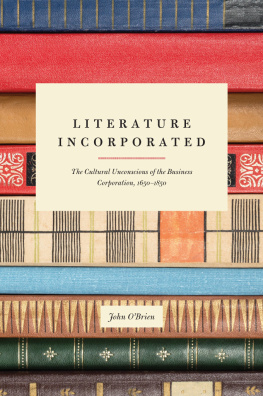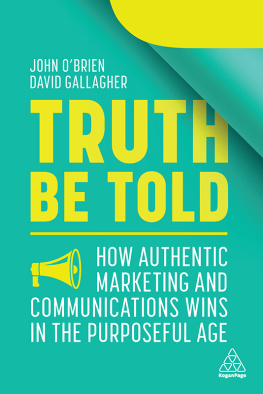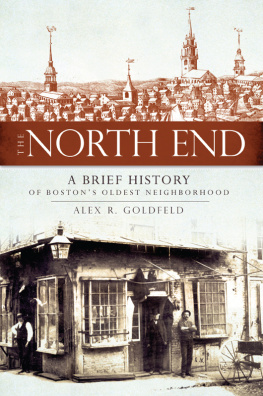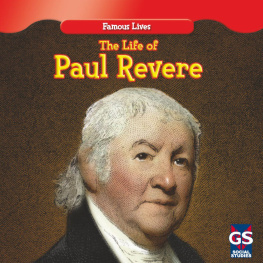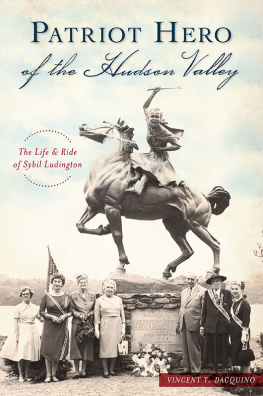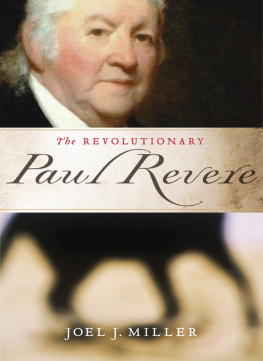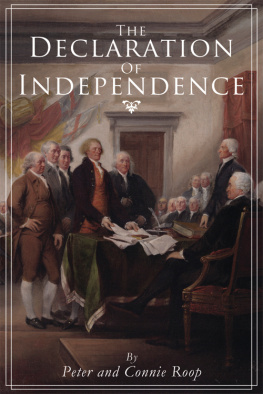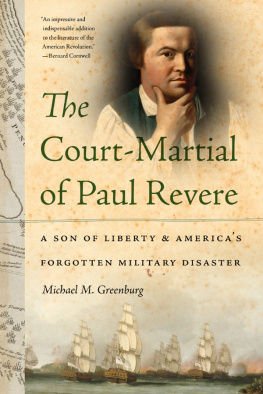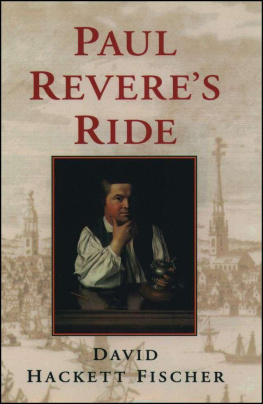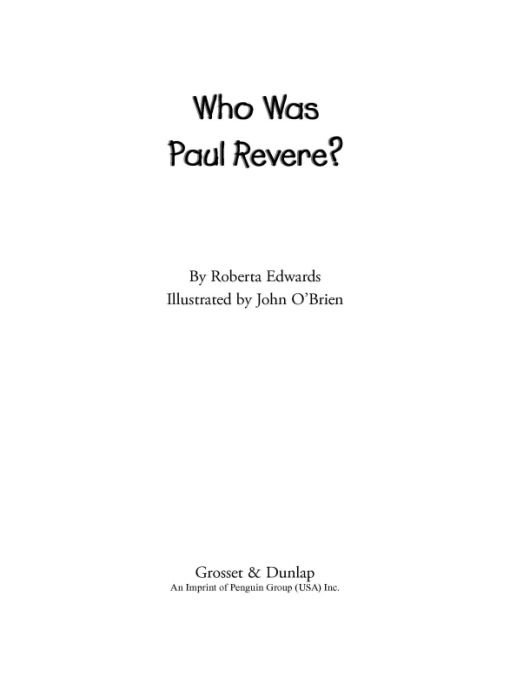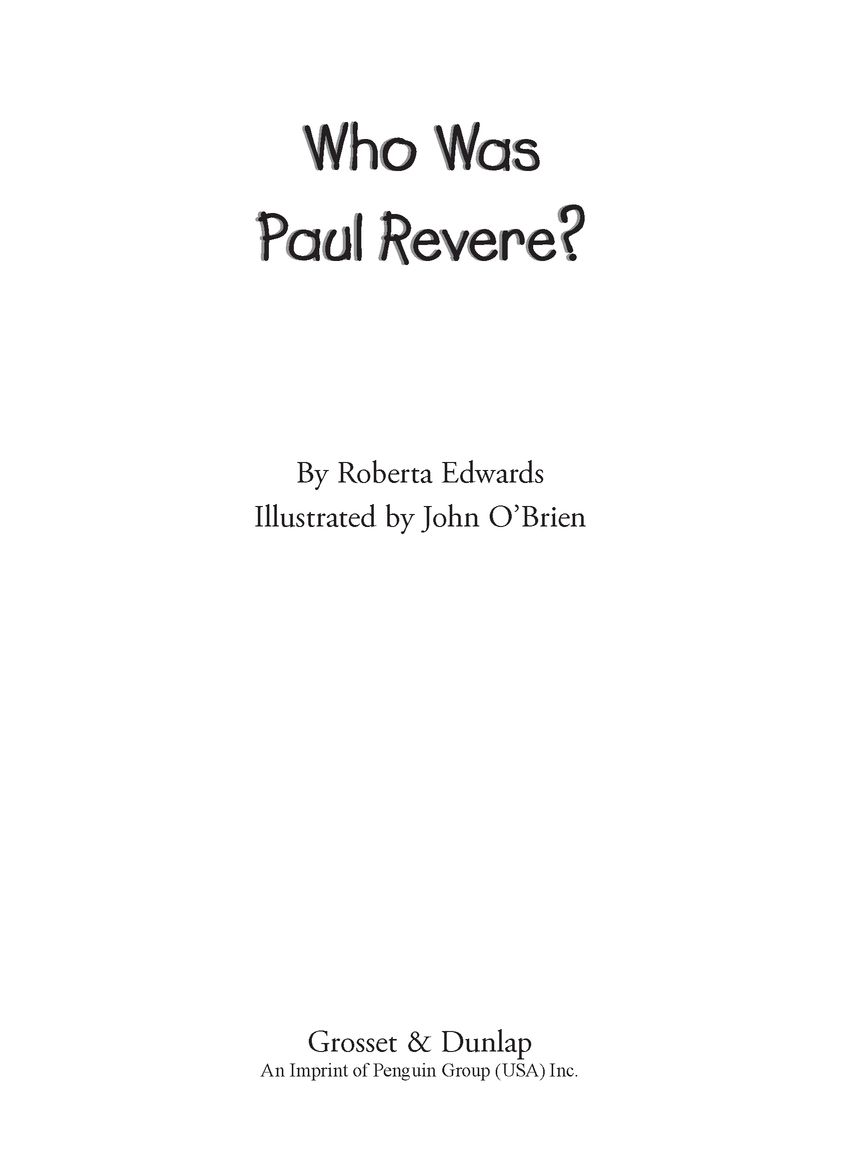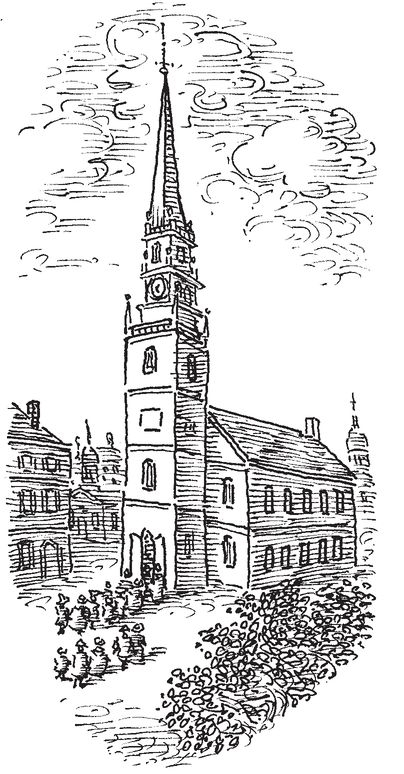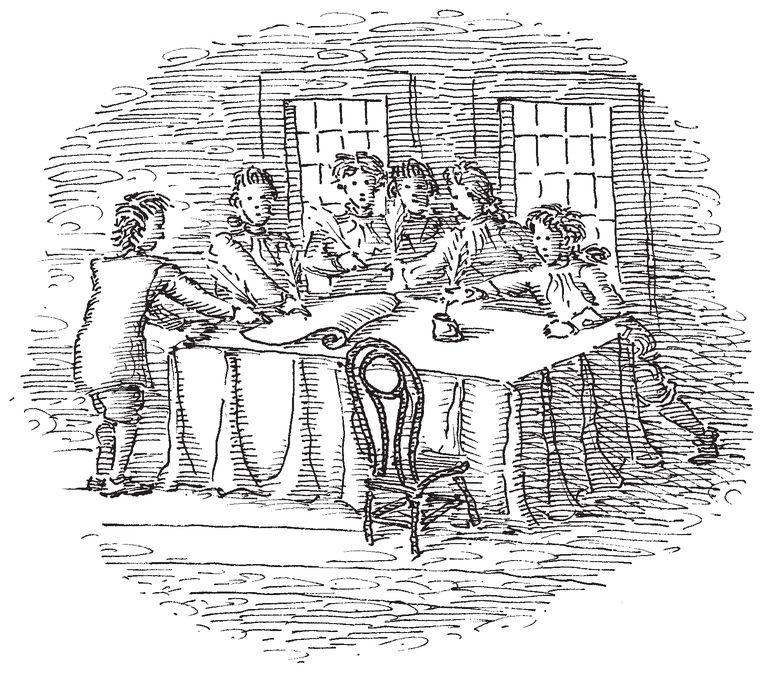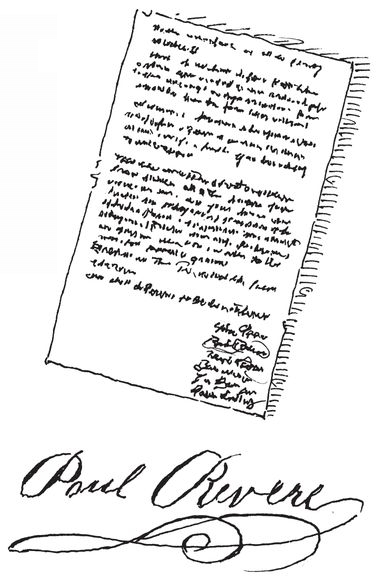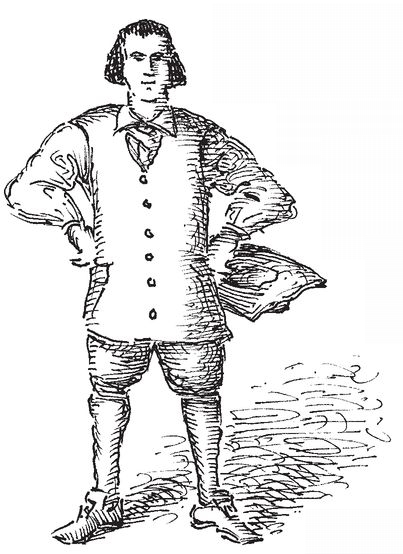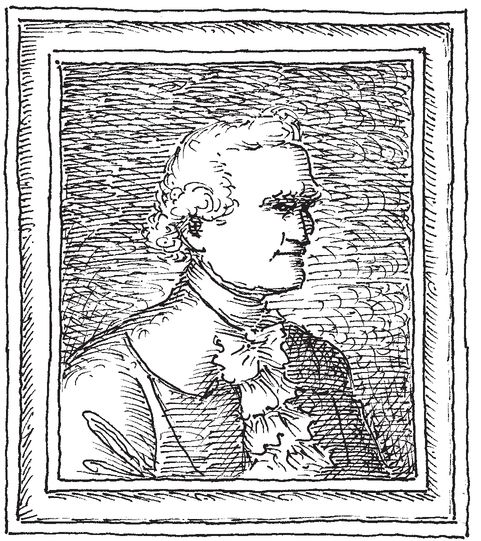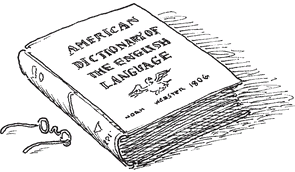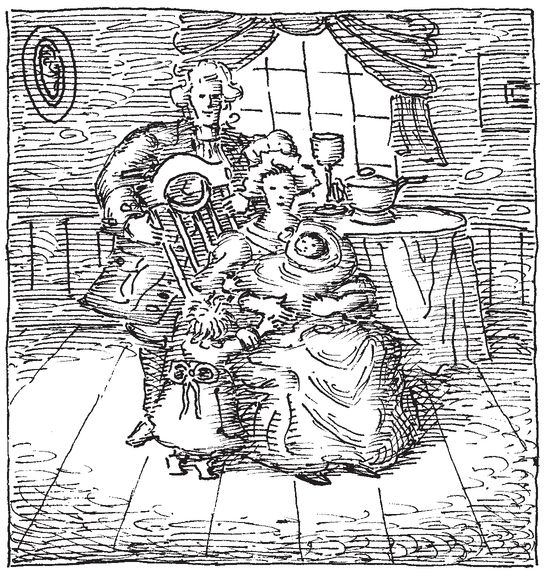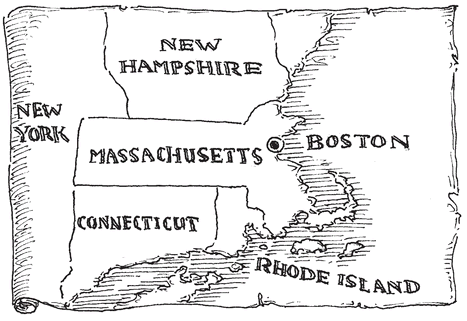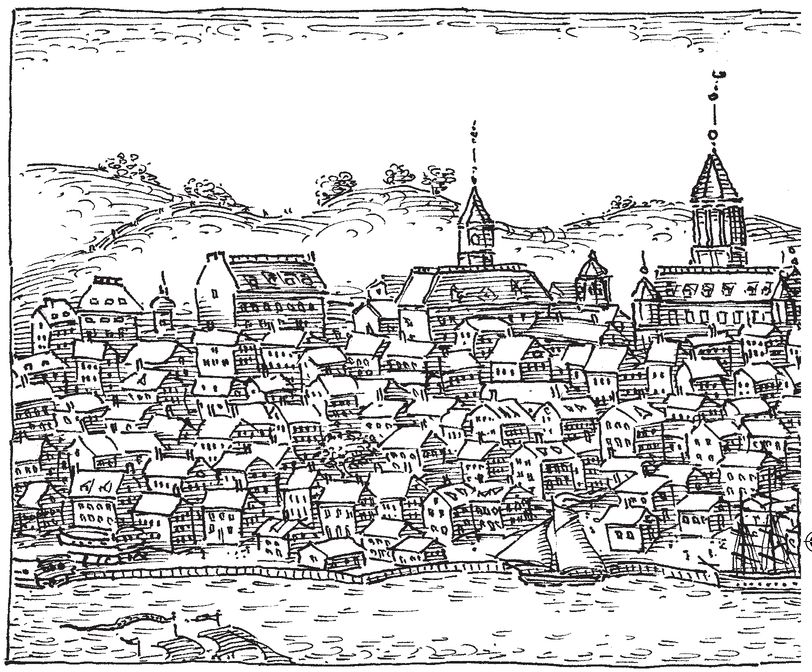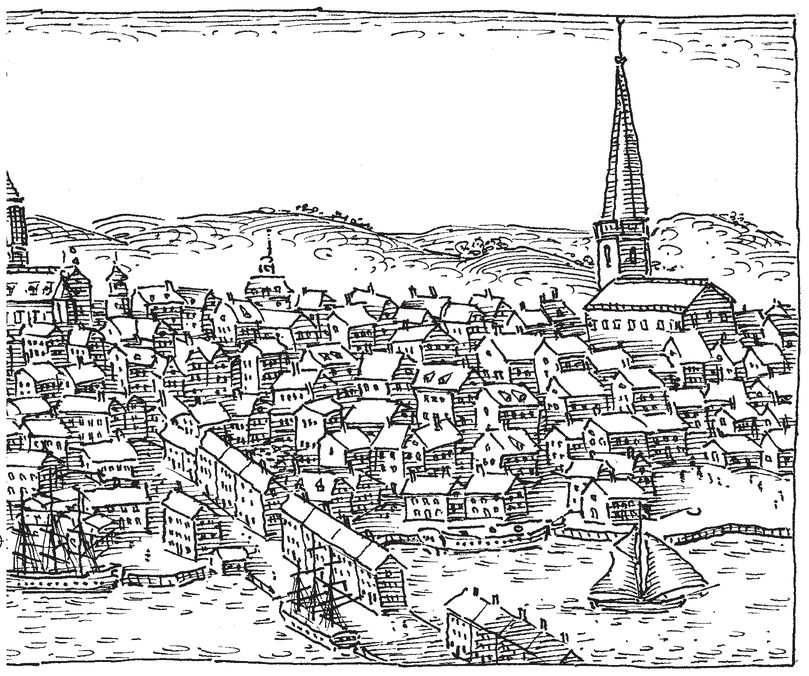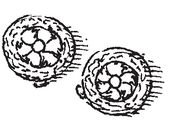Table of Contents
For my daughter TessJO
Who Was Paul Revere?
Paul Revere was a clever boy. He was also a boy who liked having money in his pocket. At fifteen, he came up with a smart idea for a business.
Near his familys home in Boston, Massachusetts, was Old North Church. It was sometimes called Eight Bell Church because of its eight huge brass bells. The smallest one weighed more than six hundred pounds. The largest weighed more than fifteen hundred pounds. Bell ringers pulled ropes on the bells to move them. Each bell made a different chime; all together, the ringing bells sounded beautiful. To this day they are considered the best bells in Boston.
The bells werent just rung on Sunday mornings. If there was a fire, they were rung. When somebody died, the bells rang out the number of the persons age. The bells were rung for many reasons.
Paul figured that the church might need extra bell ringers. And he was right. The church agreed to pay Paul and six friends three shillings a week for their services. Shillings were British coins made from silver. At that time, everyone in Massachusetts used British money. Thats because the colony belonged to Great Britain. It was one of thirteen British colonies in America.
Paul wanted to make sure that all the bell ringers did their fair share of work. So he wrote up a contract. It described what the boys had to do as bell ringers. It said that every three months a different boy would hand out the money. New members could only join if everyone in the group voted them in. Paul also wrote that no member would ever begg for money. The members of the bell-ringing business worked for their money.
Today, the contract is in the museum of Old North Church. It is neatly written. Pauls handwriting is quite fancy.
The contract says much about Paul Revere. He was a boy who believed in fairness. He didnt care about being the boss. The boys would take turns being in charge of the money. The group, not Paul alone, would make decisions. This was an important idea at that time, especially in Boston. Many people resented how powerful the king of England was. Why should one man control thousands of people living far away in the thirteen colonies?
Bell ringing was also just the right business for Paul Revere. In the eighteenth century, telephones, televisions, and computers were all far in the future. Bell ringing signaled big news. The people of Boston would flock to churches to find out what was going on.
Paul liked being at the center of things. And throughout his life, thats where you could usually find him. By the 1770s, many Americans were ready to break away from England and start a brand-new country. Paul Revere was one of them. He was not a leader of the American Revolution like George Washington or John Adams. But he spread the news about the Revolution.
In some way, he was a bell ringer all his life.
SPELLING IN THE 1700S
IN THE CONTRACT THAT PAUL REVERE WROTE FOR HIS BELL-RINGING BUSINESS, HE SPELLED BEG WITH TWO GS, LIKE THIS: BEGG. THAT WASNT CONSIDERED A MISTAKE BACK IN THE 1700S. THERE WERE NOT STRICT RULES FOR SPELLING THE WAY THERE ARE TODAY. IN FACT, THE FIRST AMERICAN DICTIONARY WAS NOT PUBLISHED UNTIL 1806 BY NOAH WEBSTER.
NOAH WEBSTER
WEBSTER SPENT TWENTY YEARS WORKING ON THE FIRST EDITION OF HIS DICTIONARY. IT LISTED THE SPELLINGS OF WORDS AS WELL AS THEIR MEANINGS. HE WANTED TO MAKE SPELLING SIMPLER.
WEBSTER ALSO WANTED AMERICAN SPELLING TO BREAK AWAY FROM BRITISH SPELLING. AFTER ALL, THE UNITED STATES WAS NO LONGER PART OF ENGLAND. SO WHY SHOULD AMERICANS KEEP FOLLOWING BRITISH SPELLING RULES? HE DROPPED THE K IN WORDS LIKE PUBLIC. IN WORDS LIKE HUMOUR AND HONOUR, THE OU WAS SHORTENED TO O SO THEY WERE SPELLED HUMOR AND HONOR. MANY OF WEBSTERS SPELLING RULES STUCK. BUT SOME DID NOT. HE THOUGHT TONGUE SHOULD BE SPELLED TUNG AND WOMEN SHOULD BE SPELLED WIMMIN.
Chapter 1
Boston Boy
In the last week of 1734, Paul Revere was born in the town of Boston. He was the first boy in the family. His older sister, Deborah, was about three years older than Paul. His mother, who was also named Deborah, was from Boston. Her family had come to America about one hundred years earlier. After Paul, Deborah had seven more children, but two died when they were still babies.
Pauls father was from France. His name was Apollos Rivoire. (say: APP-all-us RIV-war.) When he was only thirteen, he came to America all by himself. Apolloss family sent him, hoping he would have a better life than he could in France. The ship landed in Boston, which became his new home. He arrived knowing barely a word of English. But soon Pauls father learned a trade. He became a silversmith, a really good one. In time, Pauls father opened his own shop. He made some very beautiful things. Two small gold buttons with a beautiful flower pattern show his skill and talent.
Because so many people had trouble pronouncing his name, Pauls father decided to change it. He wanted a name that sounded more American. So Apollos Rivoire became Paul Revere.
The Reveres lived in a small house on Fish Street. It was close to the harbor. There were only about thirteen thousand people living in Boston when Paul was a child. No house was more than a few streets from water.



